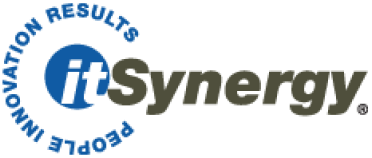itSynergy: Blog
The Internet of Things – Part 1 of 2
There has been a lot of ballyhoo in the press lately about the Internet of Things. As we always try to do with this blog, we’ve attempted to wade through the noise and reduce the topic down to what matters to small and mid-market companies as it relates to technology strategy. For the purposes of this discussion, we’re dividing the Internet of Things up into two groups and commenting on each separately:
1. Those things that do not directly connect to the Internet, but that require some type of conduit or ‘middle man’ (such as a PC or smartphone) to function.
2. Those devices that connect directly to the Internet
This first post as about the first of the two groups.
Lots of the devices in this group relate to collection and analysis of data on a person (the user). There are a couple of examples of such devices I have been using for several months now. The first is beddit (http://www.beddit.com) and the second is Basis (http://www.basis.com). beddit is a small strip which lays on top of the mattress but under the sheets on my bed. While I sleep, it measures how long I sleep, snoring, how many times I get up during the night, my resting heart rate, and other such statistics. It then gives me a ‘sleep score’ every morning when I wake up which is based on about 8 different factors.
Basis is a watch that is designed to collect all kinds of data on me while I’m wearing it (which theoretically is all the time) including heart rate, skin temperature, perspiration, and movement. It is positioned as kind of a Nike+ Fuel Band or FitBit that is supercharged. It then connects to a PC via USB and downloads the data for analysis in several key areas: Activity (steps, calories burned, etc.) and Sleep (REM sleep vs. light sleep, duration, number of times you toss and turn, etc.).
These are just a couple of examples, but I probably have a half dozen or so of these types of devices that I’ve been using in one fashion or another for the last year or so. Based on that experience, I have come to a couple of key conclusions:
1. This class of products is still relatively new, and therefore there are still a lot of kinks to be worked out as well as a lot of room for improvement. You definitely don’t want to jump into this stuff unless you are willing to deal with some inconvenience.
2. I’m frankly surprised at what I consider to be the relative lack of data collected by these devices. It seems like the opportunity exists for so much more to be collected. For example, my beddit (which in theory ONLY focuses on sleep study so should be very robust in that area) doesn’t give me any info on different types of sleep, and also only tells me if I actually get out of bed during the night – nothing about tossing and turning. The Basis is designed to actually give me better data than that on sleep but I find in practice there are large blocks of time it just labels as ‘unknown’. It just seems to me that a device should decide what it wants to be an expert at, then focus exclusively on that goal and go deep with the data and analysis in that area (hmmm….sounds kind of like what a lot of IT Consulting companies need to do too…).
3. Almost NONE of these devices talk with each other which is a shame because there is real opportunity there. For example, I use an app/website called myfitnesspal (http://www.myfitnesspal.com) to track nutritional information. Wouldn’t it be great if I could integrate that data with what Basis and beddit (and potentially other devices) collects and get a 360 degree view of my health and nutrition?
4. I would be remiss if I didn’t also point out the potential privacy concerns with using these devices. The way most of them work is that they just collect data, but then upload it ‘to the cloud’ for analysis and reporting. So once my data makes it onto the vendor’s cloud server I have lost control and ownership of that data, and I can think of all kinds of undesirable things they can do with my data (sell it, etc.).
So the bottom line from my experience up to this point is that while I feel this is a promising class of product and certainly something I will continue to monitor and consume for research purposes, I’m not sure the model is really refined for prime time yet.
Stay tuned for part 2…





